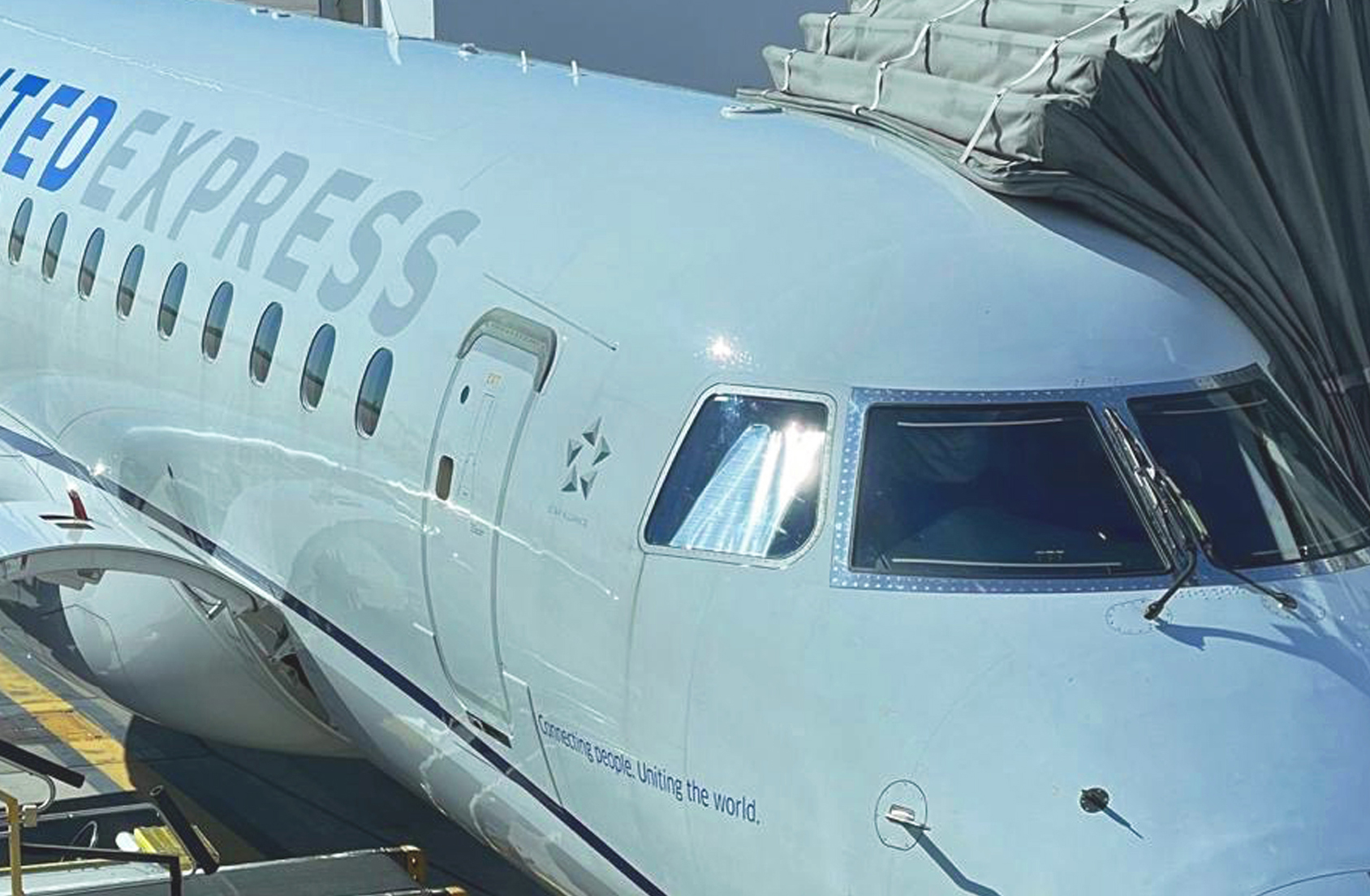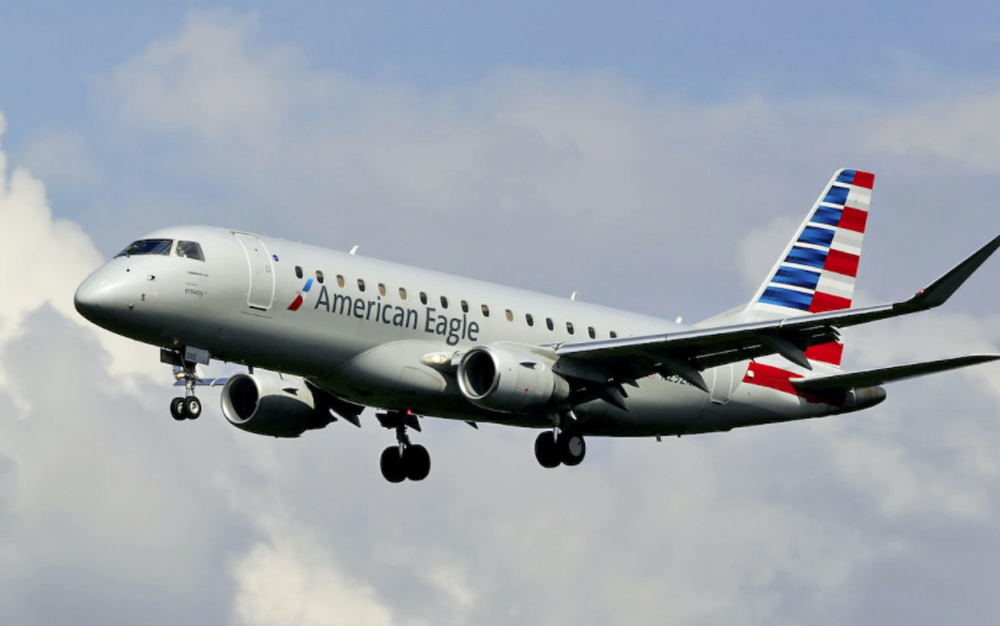The Regional Reckoning

September 6, 2022
IT’S BEEN quite a show, watching the regional airline sector reinvent itself.
For decades the regional carriers were the dregs of the airline business. The pay was dismal, working conditions hostile, your future uncertain at best. But then something happened. They ran out of pilots.
In a desperate attempt to recruit and retain pilots, salaries have skyrocketed. Carriers are offering unprecedented benefits and incentive packages. Many are giving out sign-on bonuses in the tens of thousands. Suddenly, their backs against the wall, these airlines are doing what they should have done years ago: making themselves attractive places to work.
If you’re unclear, the companies we’re talking about are the various “Express” and “Connection” subcontractors that fly on behalf of the legacy majors. Some of these airlines are wholly owned by their big-league affiliates, but they operate as independent entities, with their own fleets, employee groups, seniority lists and pay rates.
My first job as a commercial pilot, in 1990, was with a regional outfit called Northeast Express, operating on behalf of Northwest Airlines. My opening salary was less than a thousand dollars a month. Sure, 1990 was a long time ago, but it wasn’t that long ago. Five years and a bankruptcy later, working at American Eagle, I made $14,500 a year. Then, as a captain at TWA Express in the late 1990s, I would’ve made around $40,000 — if I hadn’t quit before the year was out. Throughout the 1990s and into the new century, new-hire pilots were often expected to foot their own simulator training costs, on the order of $10,000 or more. And the money was only part of it. Schedules were brutal, contractual protections minimal or non-existent.
The idea was to put your time in and get the hell out. Keep your fingers crossed that the majors were hiring. Trouble was, as time went on, this became a bigger and bigger gamble. Beginning with the advent of modern regional jets (RJs) in the mid-1990s, the majors began outsourcing more and more flying to their lower-cost partners. Thus the regional sector grew and grew and grew, eventually accounting for 50 percent of all commercial flights in the United States. Fewer and fewer of the ranks, as a percentage, were moving on to better pastures. Pilots quickly realized that a job with a regional airline could easily mean an entire career with one. The “stepping stone” idea became a harder and harder sell. After sinking a hundred grand or more into primary flight training and a college degree, what the regionals had to offer was hardly a promising return on investment.
And so, in time, the number of applicants dried up. An entire generation of would-be pilots was driven away. Rightly so.

This spawned the pilot shortage we hear so much about. What many people don’t understand is that all along it’s been a shortage created by, and suffered by, the regional carriers. The majors, at least for now, still see a hundred applicants for every opening. At the regionals it’s another story. They were being burned at both ends: new-hires became impossible to find, while the major carrier hiring wave was skimming the more experienced pilots from the top. They were cancelling flights, getting rid of planes, in some cases shutting down entirely.
Something had to be done, and this is that something. Having been in this business for over thirty years, I can hardly believe I’m typing these words, but a first-year pilot at a regional carrier can now look forward to a a six figure income. Or close to it. I can’t overstate how staggering this is. That’s ten times what I made in 1990. Above and beyond the monetary improvements, several regionals have also put together “flow-through” agreements, whereby regional pilots are guaranteed a future slot at a major.
Going back through my old columns and article, one of my most repeated gripes was that of regional carrier pay and working conditions. Not anymore. Flying for a regional airline is set to become a vastly different job than it was.
Looks like I was born thirty years too early.
I just hope this latest generation appreciates it, and realizes what the prior one went through. They oughtn’t be surprised if they sense a little resentment coming from their older peers.
Which isn’t to begrudge them. This was a long time coming and it’s fully deserved. Finally, entry-level airline pilots can earn a decent and dignified living.
Related Stories:
THIRTY YEARS ON
WHO’S MORE EXPERIENCED?
THE RIGHT SEAT
United Express photo courtesy of Itamar Reuven





Leave a Comment
Maximum 1500 characters. Watch your spelling and grammar. Poorly written posts will be deleted!
22 Responses to “The Regional Reckoning”
You are viewing newest comments first. Click to reverse order
I was “born 5 years too early”.
I finished/was finishing college right before the regionals started to up their game and pay. I would have invested in flight training knowing in just a few years, I’d be paying back my loans in no time.
Instead, my degree got me nowhere, my peers are all advancing to the majors, and I’m paying out of pocket for my training 6 years later, still trying to earn the CFI certificate.
continued…
because the company also operates at American Eagle and Delta Connection.
The expert then said: “Why did United’s Munoz apologize?”
I replied because he’d rather apologize then explain to the flying public that they’ve been put on “puddle-jumper” subcontractors they’ve never heard about like Mesa, Air Wisconsin, and Commutair unless they’ve actually read the back of the Safety Cards!
“Well, I’ll have to look into that, that doesn’t sound right to me”
This may spell the end for Regionals. I just hope they get folded in to the mainlines.
Regionals, in their present form, are not true airlines unlike the companies Patrick and I started with. They don’t sell tickets, they can’t increase the frequency on routes either. They don’t staff their own counters at terminals and others take care of screening and baggage.
The mainline airline sells off their leaner routes to the lowest bidder (no always, of course). The way the regional maximizes profits is by cutting costs for they are unable to raise prices.
There is also something inherently inefficient in smaller jets. Ever wonder why you don’t see turbine powered cars? Jet engines derive their efficiency on long routes at high altitudes and being as big as possible. Use a small jet engine on short routes and the cost per passenger goes up. The system relies on cheap labor.
The odd thing about this is that the typical passenger can’t tell you what airline he’s flying on half the time. (In my day and certainly Patrick’s they could.)
Remember when that fella was dragged off the United flight in ORD? I was listening to the radio when they had this aviation expect on saying this was inexcusable for United to do this considering the profits they’re making blah blah. I called in and said the expert didn’t know what he was talking about because this took place on Republic Airlines which has no contract with the passenger and it was silly to boycott United
I started a few years after you. My first year, I flew 1,158 hours and made ZERO dollars. I was still collecting unemployment amounting to almost $500/mo. After a year and a half, they couldn’t rely completely on pilots with tourist and student visas so, they started to pay us (those who could legally work in the USA). With the loss of unemployment, I was taking home LESS but at least I qualified for $83/mo in food stamps. It could’ve been more but there was no explaining to the bureaucrats that 80-100hrs of flying a month wasn’t part time employment. I never had so little job security in my career, and when I left, those who remained were being replaced by Red Chinese pilots whose government was giving the company $90k for each of them to build hours.
Still, it shaved years off the time to my destination.
For comparison, you were making less than I was making working in the mailroom in 1990. But no one’s life was in my hands when I pushed the cart around.
I can attest to this as one of the would be pilots that was driven away.
I’ve always loved airplanes, flying and traveling in general. I grew up always viewing piloting as an attractive and aspirational career choice. However coming out of college in the late 2000s, I was looking at a starting salary as a regional pilot at or possibly below $20k, while other fields were offering close to $50k right out of the gate. Combine that with the fact that having gone the college route versus military where I might’ve gained some flying knowledge and experience, I was staring down the possibility of an entire career at a regional carrier. I didn’t relish the idea of spending my whole life flying to places like Fargo, Topeka and Harrisburg. I wanted to fly to Hong Kong, Auckland, Istanbul, etc.
Unfortunately now in my mid-30s, in an established career with an ample salary and growth potential, it’s probably too late to make the change at this point. Looks like I was born 15 years too early.
As someone who lives in a small Texas town served exclusively by regional airlines, and which will remain so in the foreseeable future, I have seen first hand some of the high handed tactics that companies subject their employees.
When I became a ticket agent for a regional airline in 1969, all airline jobs paid decently. Plus, because of overall unionization (pilots, mechanics, flight attendants) we got excellent benefits. One example: during the decade I was a ticket agent, if we worked past 8 hours in a single shift, we got overtime pay for the extra work, even if we did not go past 40 hours in the week. And if we were called in to work for some reason (happened to me once) we got 4 hours pay even if we worked just an hour or less.
I saw the deterioration of pay and benefits after I left, and I’m glad it’s finally beginning to get better.
Not to distract from the perfectly valid points you’re making, but note that the $10k/y you made in 1990 in today’s USD is about $22.7k. So the increase you are observing is closer to a factor 5 than 10. Still quite amazing though.
It’s about time regionals start paying pilot (as well as their other staff) what they’re really worth. There is no shortage of labor, just a shortage of employers willing to pay what skilled labor is actually worth.
I’m surprised you didn’t mention Colgan Air 3407 that crashed on approach to Buffalo Niagra 02/12/09 killing all 50 aboard. The pilots were paid so little they apparently had to sleep sitting up in the pilots lounge the night before and the PIC was so fatigued he responded incorrectly to a stick shaker. His FO must have sat there dumbfounded. And Colgan’s HR department was so inept that they didn’t catch the fact that the pilot wasn’t certified to fly.
But this is America where profit is king and 50 lives lost are a cost of doing business.
Dick’s Burgers in Seattle pays a minimum wage of $19. They give workers free health care, 3 weeks paid vacation, a 50% 401(k) match, and $9,000 for tuition/childcare.
Its basic burger costs $1.80.
If your thinking is: I had to work for low wages so everyone else should have to struggle, I have a suggestion. Go to your employer and tell him you only want to be paid what you were 10 years ago. Put your money where your mouth is.
A business’s job is to make a profit. They look out for themselves, as they should. Wages are a business expense. If a company cannot afford to pay fairly for its labor it is, by definition, a failing business and shouldn’t be in business.
Employees have every right to do the same. If a job is needed, it’s worth paying fairly for.
—
“In my experience, wages usually don’t put people out of business. How you run your business will put you out of business.” Craig Jelinek, CEO, Costco
(When he said this, they just increased their minimum wage to $16/hour.)
Patrick’s right! I flew with him at his first job (he’s excellent, by the way) and I stayed with the regionals until retirement. I was in management and the training departments mostly. I didn’t have it so bad but some of the pilots did. Having a union helped.
Whenever employers moan about shortages, what they really mean is that they’re not willing to pay enough. I’m glad that pilots are now making a decent living, and I know that at least some nurses were doing well as travelling nurses. I fear teachers still don’t get the respect and pay in the US that they deserve.
I hope that regional airline salaries improve for their other groups as well (mechanics, dispatchers, F/A’s, etc.) but I agree pilots were long overdue a big raise in that segment of the industry, especially considering the costs incurred in your training. I certainly don’t miss working for a regional myself – I fortunately got hired by a major when I was beginning to despair I’d never make a decent living in my career field.
As you know, we have all-737 Ryanair in Europe with a network far too vast & complex for it to be called a “regional”. I believe the captains are paid decently but other aircrew adeptly screwed à la US regionals of yore.
In fact it’s even worse. Each crew member has an individual, piece-work contract with Ryanair, so collective action is impossible.
I believe the term “pay-to-fly FO” was coined for Ryanair, representing those able to get by OK thanks to the Bank of Mom & Dad.
I keep waiting for it to collapse, but so far no luck.
Sounds like an idea whose time is long due, but I can’t help wondering what will happen to ticket prices on those regionals…
Looks like Kit Darby was finally right. After a few decades…. 😂
I wonder whether this applies to European airlines too. I suspect working conditions were better than in North America even before, but I don’t know much about that.
The majors must be bankrolling this since 50 seaters are uneconomical now at the low rates pilots were paid. I still don’t understand why the majors won’t fly their own 70+ seat planes. Especially now that there’s no labor cost advantage with regional pilots earning what a major would pay them. Imagine no more fights with pilot unions over scope clauses. Several majors flew 70 seaters into the late 90s and early 2000s. Most of the 70 seaters now are owned by the majors and leased to a regional anyway. Why have this two step process of the pilot having to pass through a regional before getting on at a major? The pilot would only need one interview and one training program if the major hired them and was in total control of all the flights operated by the major. Now it’s common for RJ pilots to fly “on behalf” of two majors on the same day. At Skywest it could be three.
Has the pay disparity between the regionals and majors been as extreme for flight attendants and other employees as it has been for pilots? And if so, is that disparity being narrowed, too?
The pay disparity for flight attendants is also quite large, though not as significant, historically, as the disparity for pilots. But it’s not a position that requires much in the way of prerequisites, and as far as I know there is no shortage. So, no big push to improve salaries.